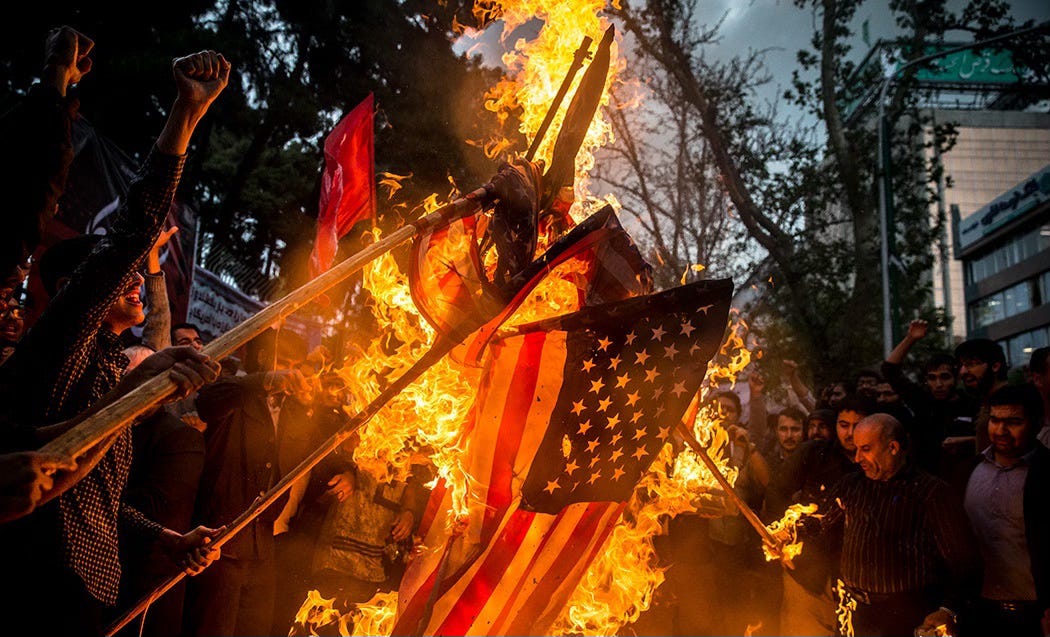Flag Burning is Protected Speech
The First Amendment protects speech we don't like and find offensive, especially when viewed as "fighting words."
President Donald Trump on Monday signed an executive order that orders the U.S. Department of Justice to “vigorously prosecute” people who burn the U.S. flag and to pursue litigation to clarify the scope of the First Amendment as it relates to flag burning.
The President also ordere…




